It was a searingly hot day in the Cotswolds this summer when a number of women took to the stage at a regenerative farming conference. The topics at the ARK Summit included bridging debates, financing change, and leading regeneration.
Dairy farmer, Sophie Gregory, and farm manager, Annie Landless, joined panels on sustainable farming, while farmer, Molly Biddell, shared her perspective as Head of Natural Capital on the Knepp Estate. (Famous thanks to its rewilding project and Isabella Tree’s seminal book Wilding.)
In a later conversation about agricultural careers, Sophie suggested I also contact Claire Whittle, a farmer and vet with a strong interest in dung beetles.
Hardy, fearless and refreshingly candid, these women are part of an increasingly visible cohort of women embracing opportunities in farming.
Record numbers of women are enrolling on agricultural courses across the UK, bringing new perspectives at a time when agroecological farming (which is nuanced, responsive & holistic in its approach) makes headlines and captures young minds.
Yet there is a way to go. Just 16 per cent of principal farmers and holders are female (19 per cent in the under-35 age group), and 40 per cent of farmers in the UK are over the age of 65, so who will take up the baton in future?
Communication is key
One thing all these women do brilliantly is communicate – both on the farm and beyond. Sophie (@farmer_in_training) might share a reel with her 35,000 followers of heading out in the dark to milk. Annie has worked for Farmerama Radio, Pasture for Life, and the soil-monitoring app Soil Mentor and posts as @annielandless, while Molly writes a regular column for Farmers Weekly and is public engagement lead for her family’s farm business (@ruralmole); Claire (@dr_dowhittle) also shares the highs and lows of managing her cattle to thousands on Instagram.
They aren’t afraid to give talks at events, host gatherings of farmers or classes of schoolkids on-farm and share their highs and lows via social media. In fact, Sophie – a trained accountant who now milks 400 Irish Friesians at organic Home Farm on the Dorset and Devon border – says she finds most of her staff through it.
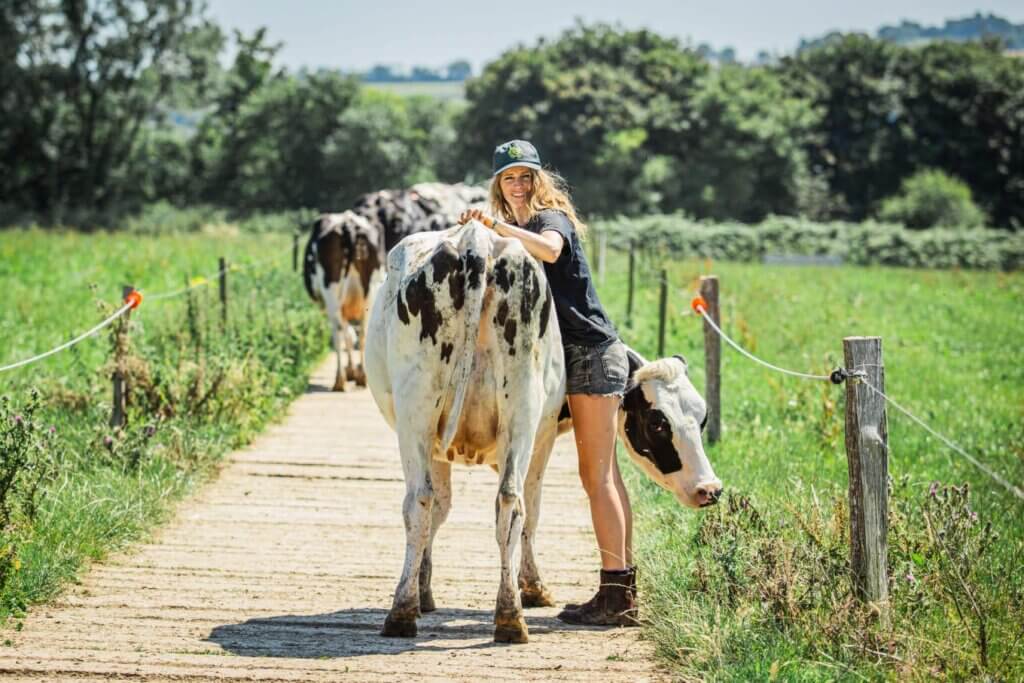
“Maybe we paint too much of an idyllic view,” says Sophie. “I just want people to know it can be an amazing opportunity.
“We started a business from zero and now have 600 cows [her husband Tom milks 200 on another farm]. We were 23 and 24 years old when we started. There’s no reason why someone who comes to us can’t go and do the same thing.”
As first-generation farmers, they now have four farm tenancies across three different estates, with a longterm plan to one day buy somewhere for themselves and their three children aged seven, 14, and 16.
There is honesty in the posts: the joy Sophie gets from calling her cows in, but also the sink-full of unwashed dishes and the madcap dash to take a forgotten lunchbox to her daughter’s school later on.
“I think it’s important to share what we’re doing and why,” adds Annie, who has been at Ampney Brook farm in Gloucestershire for three years, recently becoming farm manager. The 600-acre mixed farm is organic and regenerative, comprised of a market garden and arable acreage (of population and heritage grain) – and a herd of Pasture for Life certified Hereford cattle.

“It’s good for people to hear stories of what it’s like. It’s hard graft – and people do romanticise it a bit,” Annie explains. “We’re building a biodiverse, beautiful farm, but there’s a lot of hard, physical work that goes into it.”
Embracing nature-friendly farming
In case you’d missed it, soil has become cool – regenerative farming festival Groundswell now attracts more than 10,000 visitors to hear talks on the subject and cluster round their rainfall simulator. Apps, conferences, books, and farmers all now proclaim a mission to reinvigorate degraded soils.
For vet and farmer Claire Whittle, soil is definitely cool. She set up a free online resource called Dung Beetles for Farmers after realising the products she was prescribing as a vet were ‘hugely detrimental’ to them.
She recently stopped working as a clinical vet to run her small herd of native beef cattle on a 30-acre upland farm in North-East Wales and a consultancy business, The Regenerative Vet. It promotes healthy livestock in healthy ecosystems.
Clients include farmers and businesses, such as British Pasture Leather, Yeo Valley, and The Woodland Trust.
“There isn’t a veterinary model, so far as I know, that is based on what I do, which is selling my time and expertise,” explains Claire. “Most veterinary practices are still based on medicine sales. I had this realisation that dung beetles have a really important value in food systems, and thought what other things are there we’ve either forgotten or don’t think about? I realised that farming and nature do go hand in hand. Whether it’s swallows eating flies or minerals found in trees.”
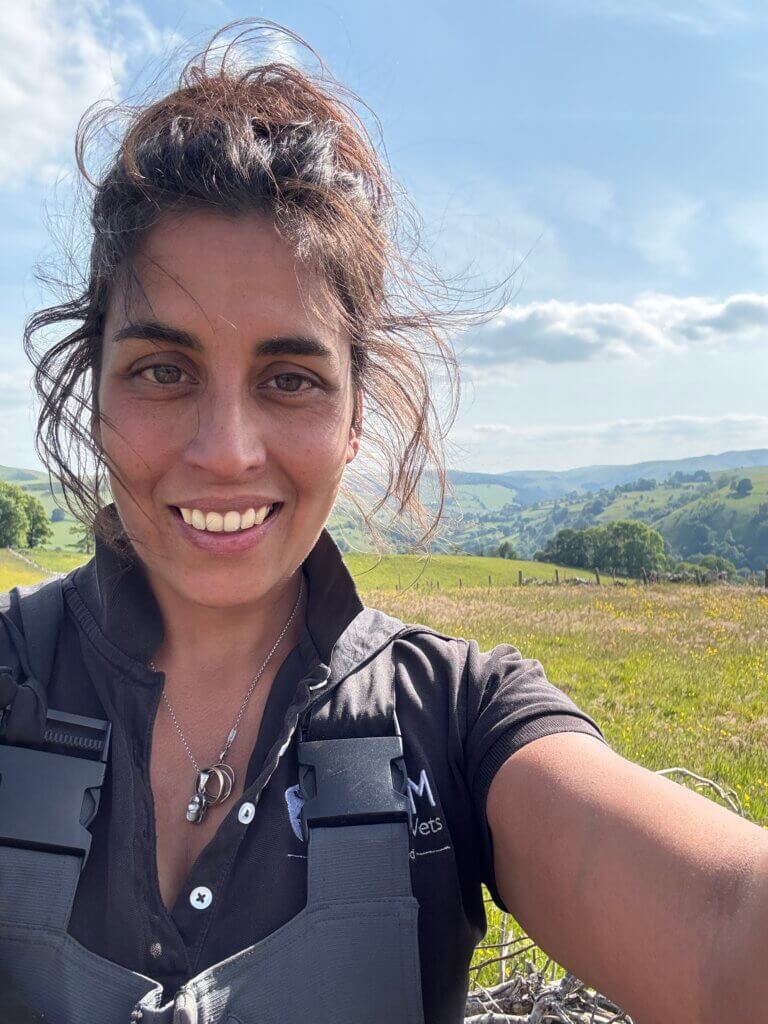
Challenging the norm
For the first three years of Molly’s career, she was often the only woman speaking at a table of men. “I like to remind people that I’m a feminist, which often elicits some shock, but actually it’s a really interesting juxtaposition,” she says. “I’m given platforms because I come in with a research perspective, so I think, OK, I’m going to use these platforms and make sure that other women can use them too.”
After studying geography at university and writing a dissertation on agriculture post-Brexit, Molly specialised in policy work in the Savills Rural Research team. Now, she’s head of natural capital at the Knepp Estate, while still working part-time at home on the family-run 2,250-acre Hampton Estate in Surrey.
It has the last remaining commercial hop garden in the county, Pasture for Life-certified Sussex cows and more than 1,000 acres of woodland.
Three days per week, Molly works on developing a habitat bank at Knepp for biodiversity net gain. Habitat banks are pieces of land locked into 30-year covenants with a commitment to increase biodiversity and the potential to sell units.

“We are the eco-anxious generation and if you want your career and your work to have impact, agriculture is the place to come,” adds Molly. “The thing we’re missing is the business case. We know it’s hard to farm, to make margins – it’s really hard to make profit. We need business cases that bring brilliant young people in and help them make careers.”
Claire grew up near Liverpool, re-training as a vet at the age of 24. She then fell in love with the farming side and as a mature student found herself both working as a DJ and milking. “I think potentially being a brown woman as well is quite a big thing,” Claire explains. “Because if I’d seen people that look like me in farming when I was younger, I might have thought about doing it. It’s also about showing the younger generation that it’s cool and what a bloody lovely life it can be.”
Seizing opportunities
If farming life doesn’t make them sound busy enough, each of these women also fulfils a range of other important roles.
Claire sits on the steering group of the Nature Friendly Farming Network for Wales and was named Dairy Industry Woman of the Year 2025. Sophie sits on the board of representatives at Arla, is a member of Women in Dairy, a trustee of the Let’s Farm Foundation and was just named a changemaker in The King’s Foundation’s 35 under 35. Molly chaired the Southeast Future of Farming Conference 2025, and Annie gives talks and also trains farmers on Soil Mentor.
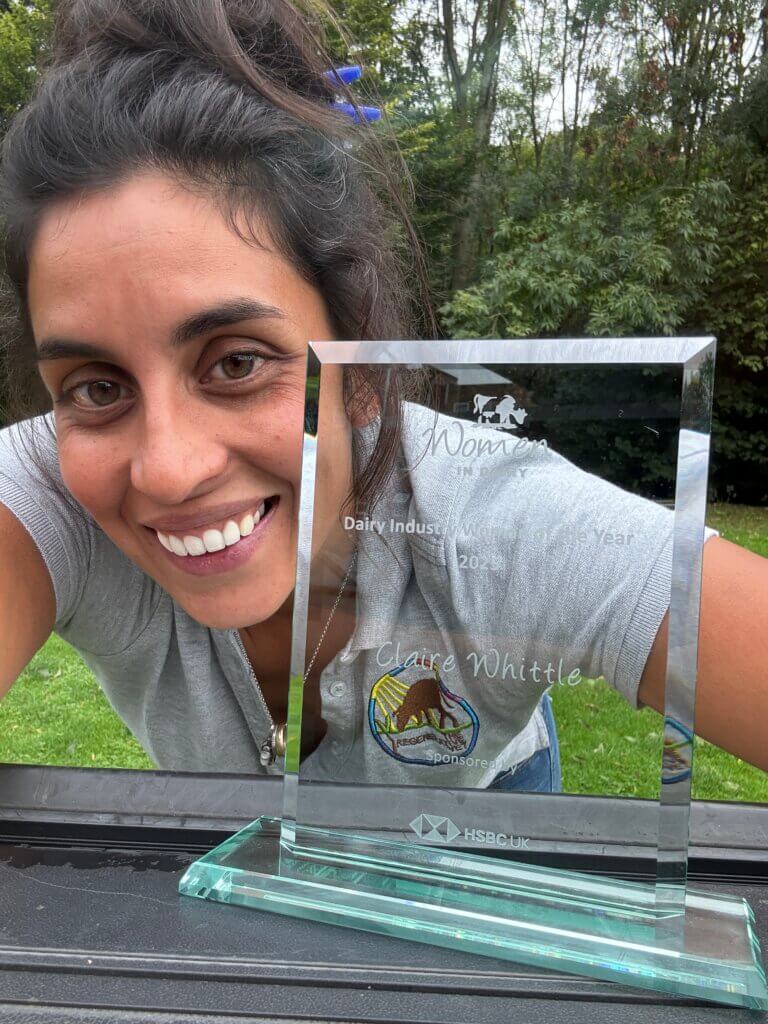
Each has spent time learning and working out their approach to farming. Sophie’s Nuffield Scholarship asked ‘What’s the future for organic dairy’, while Claire’s was titled ‘Can regenerative agriculture improve the health and welfare of livestock?’.
Annie came from a farm background but worked in communications in London and Berlin, until aged 30 she pivoted to study agriculture at the Royal Agricultural University, while Molly’s studies always reflected her interests in agricultural policy.
“I want to try to deliver solutions, to fix food systems for the planet and people,” says Molly. “I love food and the fact it’s a democratic way of allowing people to make change.”
Annie describes her first tricky calving and the pressure of keeping her cool in stressful situations but also the joys of seasonal living. “Reaching milestones like September cultivations and autumn crop drilling, flocks of finches, woodpeckers in winter, the return of the chiff chaff in March. I live for those magic, seasonal moments.”
While for Claire, “Farming is science, it’s art, it’s engineering, it’s plumbing, vetting, foot trimming, fencing, walling. I’ve learned so many skills – I feel like I’m straight out of vet school again.”

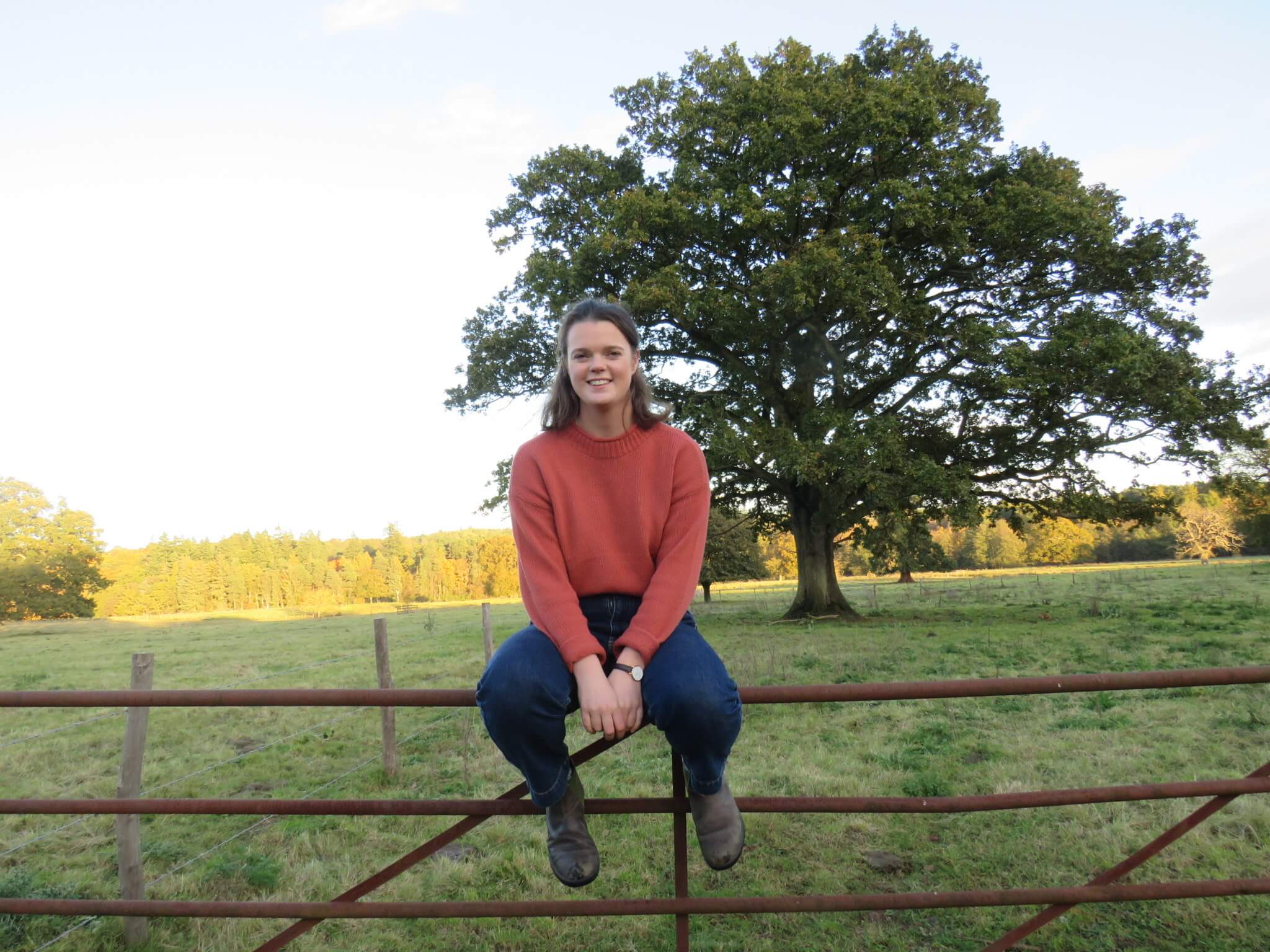
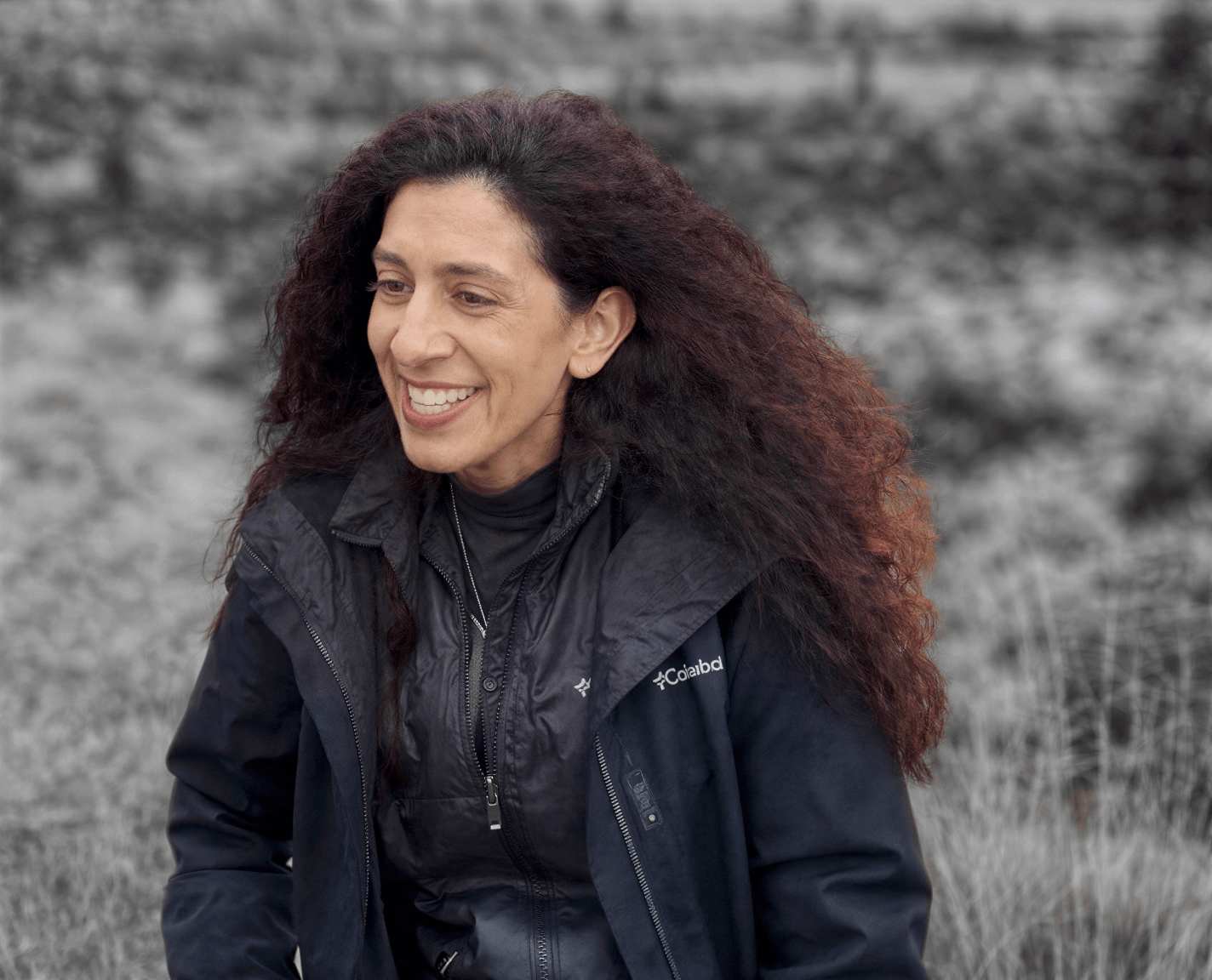







Exciting perspectives. Go girls!